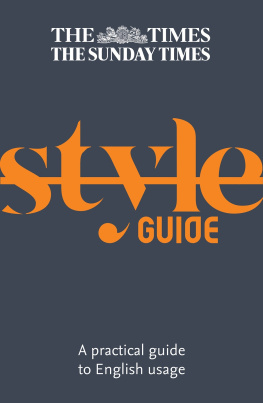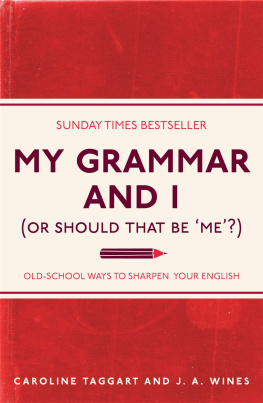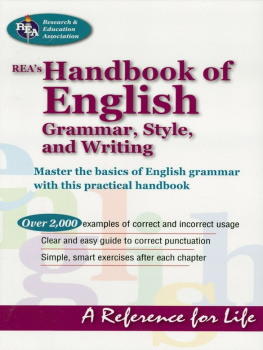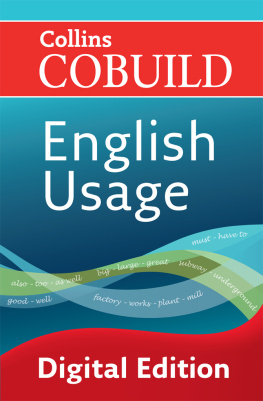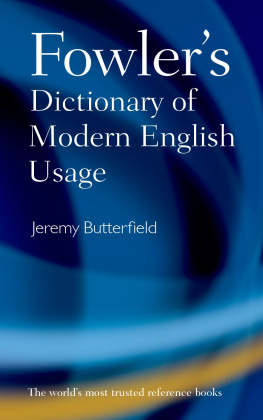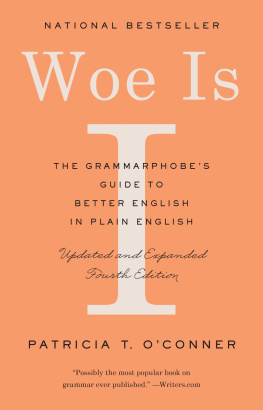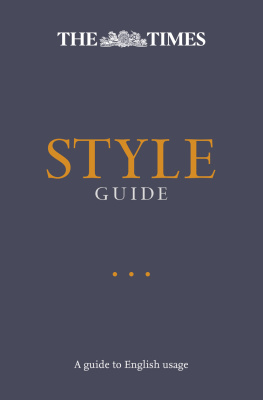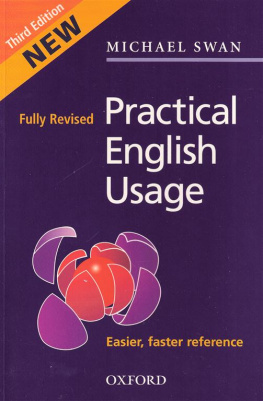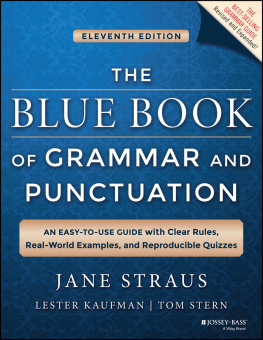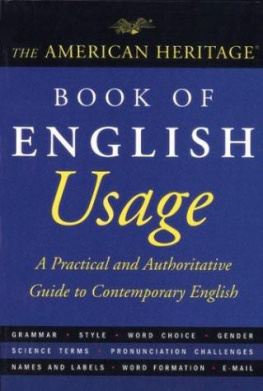Australia
HarperCollins Publishers (Australia) Pty. Ltd.
Level 13, 201 Elizabeth Street
Sydney, NSW 2000, Australia
http://www.harpercollins.com.au
Canada
HarperCollins Canada
2 Bloor Street East - 20th Floor
Toronto, ON, M4W, 1A8, Canada
http://www.harpercollins.ca
New Zealand
HarperCollins Publishers (New Zealand) Limited
P.O. Box 1
Auckland, New Zealand
http://www.harpercollins.co.nz
United Kingdom
HarperCollins Publishers Ltd.
1 London Bridge Street
London SE1 9GF
http://www.harpercollins.co.uk
United States
HarperCollins Publishers Inc.
195 Broadway
New York, NY 10007
http://www.harpercollins.com
Published by Times Books
An imprint of HarperCollins Publishers
Westerhill Road
Bishopbriggs
Glasgow G64 2QT
www.harpercollins.co.uk
HarperCollins Publishers
1st Floor, Watermarque Building, Ringsend Road,
Dublin 4, Ireland
First published 2003
Second edition 2017
Third edition 2022
Times Newspapers Ltd 2022
www.thetimes.co.uk
The Times is a registered trademark of Times Newspapers Ltd
All rights reserved. No part of this publication may be reproduced, stored in a retrieval system, or transmitted, in any form or by any means, electronic, mechanical, photocopying, recording or otherwise without the prior permission in writing of the publisher and copyright owners.
The contents of this publication are believed correct at the time of printing. Nevertheless the publisher can accept no responsibility for errors or omissions, changes in the detail given or for any expense or loss thereby caused.
HarperCollins does not warrant that any website mentioned in this title will be provided uninterrupted, that any website will be error free, that defects will be corrected, or that the website or the server that makes it available are free of viruses or bugs. For full terms and conditions please refer to the site terms provided on the website.
A catalogue record for this book is available from the British Library.
e-Book Edition April 2022
ISBN 9780008412890
Version: 2022-04-21

a, an use a before all words beginning with a vowel or diphthong with the sound of u (as in unit) a eulogy, a European etc; but use an before unaspirated h an heir, an honest woman, an honour. Whether or not to use an before an aspirated h when the first syllable of a word is unaccented hotel, historian, heroic is a matter of preference; The Times and The Sunday Times prefer a. With abbreviations, acronyms, initials, be guided by pronunciation: an LSE student, an RAF officer, an NGO
abbreviated negatives (cant, dont, shant etc, and similar abbreviations/contractions such as Ill, youre) should be discouraged except in direct quotes, although in more informal pieces such as diaries, sketches and some features they are fine when the full form would sound pedantic
Abdication cap with specific reference to Edward VIIIs; in general sense, use lower case
Aboriginal (singular, noun and adjective) and Aborigines (plural), for native Australian(s); aboriginal (lower case) for the wider adjectival use. Be aware that the term, especially as a noun, is increasingly regarded as outmoded and potentially offensive in Australia, where terms such as Indigenous Australians are often preferred
absorption is the noun from absorb; absorbtion is a non-word that has found its way into our pages more than once
abstraction often an escape from precise meaning and a sign of lazy writing. Beware words such as situation, crisis, problem, resolution, question, issue, condition. A newspaper is about what happens and what people do; it should use concrete words. A headline, especially, may be killed by an abstract noun or phrase
abu means father of so must not be separated from the name that follows, ie Abu Qatada at first mention remains Abu Qatada (father of Qatada), not simply Qatada, and certainly not Mr Qatada
accents give French and German words their proper accents and diacritical marks, unless they have passed into common English usage. Use accents as appropriate also on capital letters and in headlines. With anglicised foreign words, no need for accents (hotel, depot, debacle, elite, regime etc), unless it makes a crucial difference to pronunciation or understanding, eg clich, faade, caf, expos. NB matinee, puree etc.
In Spanish give accents only on the names of people, if they can be checked. In other Spanish words and place names, ignore accents and diacritical marks except for n with the tilde (or , as in El Nio); this is considered a distinct letter of the alphabet in its own right and is also familiar to (and easily pronounceable by) most English-speaking readers
Achilles heel a small but deadly area of weakness in someone seemingly invulnerable (like the Greek hero of the Trojan War, hence cap and apostrophe); but achilles tendon (lower case, no apostrophe, as the connection with the myth is more remote)
acknowledgment as with most (but not quite all) such words, no middle e
acronym a word formed from the initial letters or groups of letters of words in a set phrase or series of words, eg Opec, from the Organisation of Petroleum Exporting Countries, or Ukip for the United Kingdom Independence Party. If the acronym is easily pronounced and usually spoken as a word, write with an initial cap and then lower case: Opec, Nato, Ukip, Rada, Bafta, Nice, Acas, Asbo etc; follow this house style whatever the organisation itself may choose to do. Acronyms do not normally take the definite article.
Non-acronym abbreviations based on initials that are spelt out separately in speech (ie not pronounced as a word) remain in caps, and normally retain a definite article: the BBC, the RAF, the CBI, the LSO, the UN, the EU etc. A few, by convention, take an unpleasant mixture of upper and lower case: MoT, the MoD, the DfE, the IoD. All but the most familiar organisations, bodies, concepts and things should be named in full at first mention with the initials in brackets. However, a lot of initials in text will produce an unappetising alphabet soup, so use as sparingly as possible; after first mention try to vary with a suitable word: the ministry, the corporation, the department, the institute etc
Act theatre, ballet, opera etc; use cap and use roman numerals when naming, specifying or giving references: Macbeth, Act I, Act II etc; for more general refs use lower case, eg in the second act of the play, in the third scene of Act II
Act and Bill (parliamentary), cap when giving full name (the Data Protection Act, the Assisted Dying for the Terminally Ill Bill etc) but otherwise lower case: a bill intended to decriminalise assisted suicide; the act covers the gathering, storing and processing of personal information etc
action as a transitive verb meaning undertake (The marketing department will action this) is corporate jargon of the most irritating kind; avoid
active the active voice is generally better (and shorter) than the passive, especially in headlines
actor, actress for women use the feminine designation
AD, BC note that AD comes before the date, eg AD35; BC comes after, 350BC. Both have no spaces. With century, both are used after, eg 3rd century BC/AD. The terms BCE and CE (Common Era) are not to be used by
Next page
